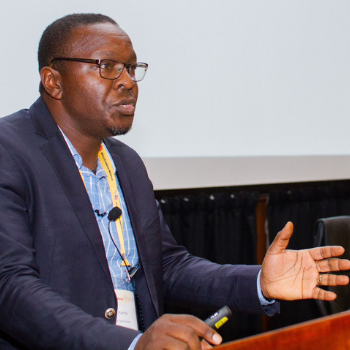Community of Practice – Bolgatanga East District Assembly, Ghana
“If a development team is to become self-sustaining, quality needs to be taken on by the group as a whole and not owned by just one person or one small group.” --- Emily Webber
The problem/Challenge
There is an increasing interest among international development advocates to foster the use of rigorous evidence in policy and development practice within government. While a lot of work has been done to improve the supply of robust evidence, and mobilize the evidence, and communicate it into policy processes;
- The use of rigorous, policy-relevant evidence in government remains a challenge, leading to poor policy choices and ineffective development outcomes;
- There is also little understanding of the political and organizational challenges of embedding a broad culture of evidence use within government departments and agencies.
To address the challenges of evidence use in government, CDD-Ghana with the support of the Hewlett Foundation, initiated the “Evidence for Development (E4D)” project in 2019 in some selected Districts that included Bolgatanga East District Assembly in Ghana. The E4D project sought to strengthen the capacity of policy actors to access and use policy-relevant data and evidence to inform policy decision-making, and ultimately improve social development outcomes at the sub-national level in Ghana.
The Goal
The long-term goal of the E4D project is to institutionalize data and evidence use in policy and practice which will contribute to better development outcomes. The project seeks to achieve this goal;
- by understanding what drives the use of rigorous evidence within government, and
- to use that understanding to implement, support, and improve an evidence-informed approach to policy planning and program implementation, by local government authorities.
The solution
The E4D capacity development intervention proposed to strengthen capacity to support evidence use in policy and practice at the district level;
- Capacity building workshop for evidence users/district policy actors (district coordinating directors, development planning, and heads of departments)
- Set-up and support a community of practice platform.
The Community of Practice (CoP) was a multi-stakeholder platform that brought together local government policy actors and civil society organizations to work together to promote and support the implementation of evidence to policy practice approach at the district level.
Goals/Objectives of the CoP:
- improve the relationship between evidence users (policy actors) and evidence producers (CSOs, district statistics, and information management officers);
- facilitate the generation of policy-relevant evidence and data to support an evidence-informed approach to planning and decision making;
- increase policy actors’ access to, and capacity to apply data in routine decision-making while taking into consideration available resources and the local context
Members of the CoP included three partner civil society organizations in project districts; District Statistics Officer, District Development Planning Officer, other members drawn from heads of decentralized departments (health, education, statistics); chair of three sub- committees of the local elected representative assembly (social welfare, development planning; and finance and administration sub-committees). The CoP met quarterly to review and to make input into the Medium-Term Development Plan (MTDP) and the Annual Action Plan (AAP) of the Bolgatanga District Assembly.
Results
The actors became very instrumental in the implementation of the project and become champions of the EIDM approach to policymaking and practice in the Districts and beyond.
- Created awareness, improved knowledge, and enhanced interest and commitment of key actors both within and outside government to support and advocate for EIDM practice.
- The CoP has enabled broad, inclusive participation in policy planning processes, strengthened information sharing, and helped to build relationships that are supporting data and evidence use in decision-making
- Improved the quality of policy documents produced by the Bolgatanga District Assembly, the CoP work brought harmonization of departmental workplan into the MTDP plan. Due to the work of the CoP, the Bolgatanga East Assembly MTDP plan was the first to be approved by the National Development Planning Commission NDPC) of Ghana.
“Yes, I have observed so many changes in the way the district assembly works. For instance, in the preparation of the medium-term development plan, data was sought from each of these centralized departments to feed in and after that, there was a meeting to harmonize all this plan... The good thing is that somebody realized that my inputs were not captured getting to know why it was not there for a good reason. It brings some bit of understanding and also brings out a plan that is implementable and achievable” ~ CSO Rep
“…. the E4D project has made our DMTDP a better document. We would have submitted our medium-term development plan anyway but this has come in as a positive intervention” ~ District Development Planning officer
“As an organization, working to promote accountable governance and responsive government at the district level, we now have a much better understanding of the different mechanisms and approaches to influence EIDM practice and shape the evidence-to-policy field of practice at the district level than before the implementation of the E4D project” ~ CSO Rep
Conclusion
A Community of Practice (CoP) is a useful mechanism to host actors of varied expertise to build community, capacity and to strengthen systems, data and evidence use within government. A properly constituted and incentivized CoP can help to address key organizational constraints to EIDM practice at the district level. The CoP created an enabling environment to harmonise, speed up the District Assembly plan collated from different departments.


